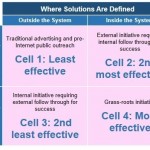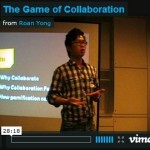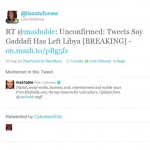Many of us in developed countries find it annoying when somebody calls and hangs up before you can answer. But in developing countries, "missed calls" are becoming an extremely cost-effective cue for transmitting and obtaining information—without incurring fees for voice calls or text messages. In India, for example, small businesses call vendors and hang up to indicate they need deliveries, fishermen use a "missed call" to inform buyers they are on the way back … [Read more...]
Crowdsourcing USAID Monitoring and Evaluation
Crowdsourcing! Big Data! International Development! A recent Washington Post article on future U.S. Agency for International Development (USAID) monitoring and evaluation (M&E) activities in Afghanistan piqued many of my interests. According to the article, after coalition forces withdraw from Afghanistan next year, only 20 percent of U.S.-funded reconstruction projects worth billions of dollars will be in areas safe enough for U.S. officials to visit and … [Read more...]
Castrating Hate-Fueled Leaderless Web 2.0 Swarms?
A low-budget Islamophobic video translated into Arabic and crafted to provoke, offend, and evoke outrage near the anniversary of 9/11 is the latest example of how almost anyone can incite powerful leaderless social media swarms. The scary thing is a tech savvy but disturbed high school or college student could pull a similar stunt. It turns out the producer of "Innocence of Muslims"—which mocks Muslims and the prophet Muhammad and incited mob protests against … [Read more...]
Video Clip of the Month: Leading Online Communities
How can you turn a leaderless communications swarm into a collaborative online community that achieves results? That's the zillion dollar question for 2012. As my runner up for January 2012 video clip of the month below shows (and anybody who has been following the news knows), self-directed communications swarms fueled many of the top news events of 2011. While my runner up for video clip of the month above is inspiring, especially on the New Year, my main … [Read more...]
Strategic or Scary? Public Diplomacy Commission Cut
After Tripoli fell to anti-Gaddafi forces last August, I remembered a particularly clairvoyant blog post/radio interview I ran across a couple of months earlier. The blog post/radio interview gave a spot on analysis of how information could be used to empower Libyans to take back their own country. When I went back to the blog to find out if its author had any new predictions, I found out the Mountain Runner blog was on hiatus because its author had recently … [Read more...]












